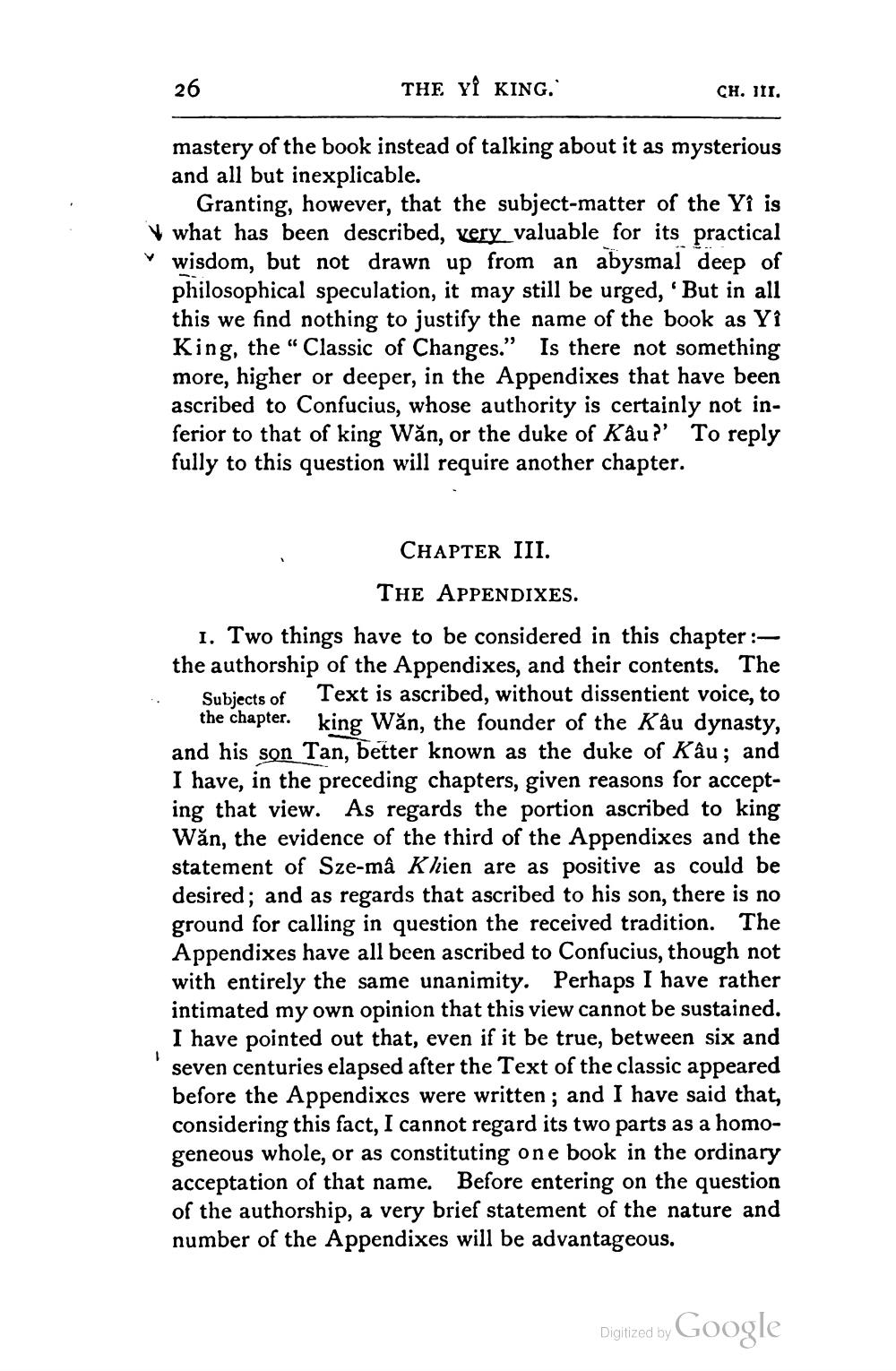________________
26
THE YÎ KING.
CH. III.
mastery of the book instead of talking about it as mysterious and all but inexplicable.
Granting, however, that the subject-matter of the Yî is what has been described, very valuable for its practical ✓ wisdom, but not drawn up from an abysmal deep of
philosophical speculation, it may still be urged, 'But in all this we find nothing to justify the name of the book as Yi King, the “Classic of Changes.” Is there not something more, higher or deeper, in the Appendixes that have been ascribed to Confucius, whose authority is certainly not inferior to that of king Wăn, or the duke of Kâu?' To reply fully to this question will require another chapter.
CHAPTER III.
THE APPENDIXES. 1. Two things have to be considered in this chapter :the authorship of the Appendixes, and their contents. The
Subjects of Text is ascribed, without dissentient voice, to
the chapter. king Wăn, the founder of the Kâu dynasty, and his son Tan, better known as the duke of Kâu; and I have, in the preceding chapters, given reasons for accepting that view. As regards the portion ascribed to king Wăn, the evidence of the third of the Appendixes and the statement of Sze-mâ Khien are as positive as could be desired: and as regards that ascribed to his son, there is no ground for calling in question the received tradition. The Appendixes have all been ascribed to Confucius, though not with entirely the same unanimity. Perhaps I have rather intimated my own opinion that this view cannot be sustained. I have pointed out that, even if it be true, between six and seven centuries elapsed after the Text of the classic appeared before the Appendixcs were written ; and I have said that, considering this fact, I cannot regard its two parts as a homogeneous whole, or as constituting one book in the ordinary acceptation of that name. Before entering on the question of the authorship, a very brief statement of the nature and number of the Appendixes will be advantageous.
Digitized by Google




